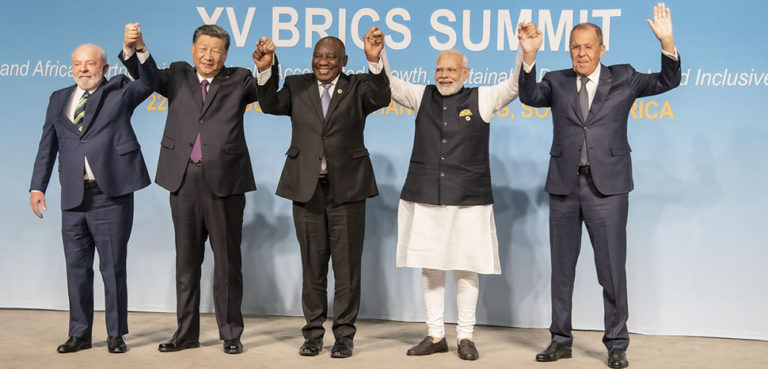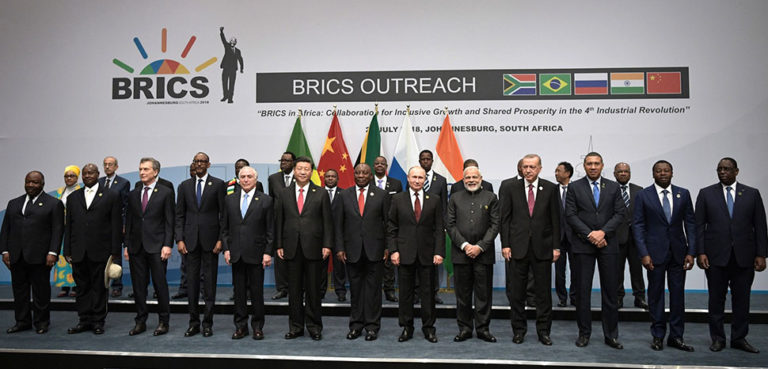Brics Background
The BRICS bloc is an association of five major emerging economies: Brazil, Russia, India, China, and South Africa. The acronym originally started as “BRIC,” representing Brazil, Russia, India, and China, coined by economist Jim O’Neill in 2001. These countries were recognized for their significant influence on regional and global affairs, particularly in terms of economic growth and political influence.
The first formal meeting of the BRIC countries took place in 2009, and the group has since held annual summits to coordinate on various global issues, including economic development, political cooperation, and security. In 2010, South Africa was invited to join the bloc, turning “BRIC” into “BRICS.”
BRICS has focused on promoting peace, security, and development, often positioning itself as a counterbalance to Western-dominated institutions like the IMF and World Bank. The group has launched initiatives like the New Development Bank (NDB) and the Contingent Reserve Arrangement (CRA) to further economic cooperation and financial stability among member countries. Despite differences in political systems and economic models, BRICS continues to be a significant platform for cooperation among these key emerging economies.
On January 1, 2024, the BRICS intergovernmental organization, originally consisting of Brazil, Russia, India, China, and South Africa, expanded its membership by welcoming Egypt, Ethiopia, Iran, and the United Arab Emirates. This decision to broaden the group’s composition was made during the August 2023 summit held in Johannesburg, initiating discussions about the organization’s increasing global prominence.
With this expansion, the newly termed “BRICS+” now represents approximately 37.3% of the world’s GDP, surpassing the European Union’s share of 14.5%. While this growth enhances the group’s economic stature, it also introduces potential internal conflicts due to existing tensions between some new member countries, such as Saudi Arabia and Iran or Egypt and Ethiopia. These dynamics may pose challenges in achieving unified political stances within the group.
The additional members contribute around 4% to the collective GDP of BRICS+, suggesting that the significance of this enlargement extends beyond mere economic metrics. The inclusion of these nations is expected to amplify the group’s influence within international bodies like the United Nations, World Trade Organization, and institutions established under the Bretton Woods system, thereby strengthening the voice and representation of developing countries on the global stage.










